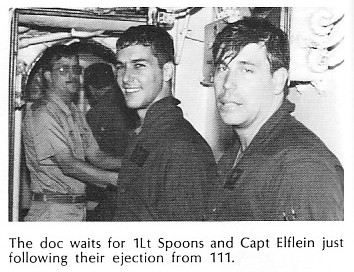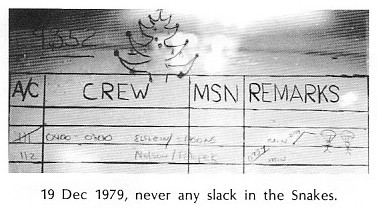 |
 |
The answer is ... (wait for it) ... there is no answer. Whatever works for you is how you do it.
In high school and college I focused on the 20% that allowed me to figure out the remaining 80%. But in flight school I learned the first week that nothing short of memorizing 100% was going to work. In an aerial engagement, you have to fly the plane, train the weapons, maintain SA (situation awareness) externally (how is the rapidly changing 3D geometry evolving) and internally (fuel, weapons status, instruments), abide by the rules of engagement, coordinate over the radio – all at 7 miles a minute. Sensory overload is an understatement. If you do not have instance recall to most of your requisite responses, your day at the office will not go well.
Flying an instrument approach is another very "dense" experience. In the middle of all the controllers, frequencies, nav aids, vectors, bearings, distances, altitudes, times, minimums, squawks, speeds, landing config changes, noise abatement, traffic advisories, turn and rollout computations; the harried approach controller is going to inject your missed approach instructions ...
You have one hand on the throttle, the other on the stick, and you have to record as much as you can and repeat the instructions back verbatim.
on missed approach, climb to six seven hundred, then climbing right turn to eight thousand direct Cheyenne VORTAC, continue via Cheyenne 016 radial to 10 mile fix and hold north, right turns, 196 degrees inbound
Emergency procedures have to be recalled and executed without hesitation in the midst of (remarkably enough) an emergency. On the carrier, one of our F-4s experienced a dual engine fire immediately after take-off. The pilot instantly went through the procedure for catastrophic engine failure. He continued to lose what precious little altitude he had, and punched out. When the investigation was complete, his flight record was dinged because he should have executed the procedure for settling off the catapult. The result would not have changed, but knowing and executing the right procedure is sacrosanct.
 |
 |
When the crisis subsided, the flight schedule board in the ready room was updated at the far right above.
Responding to the incomparable chaos of combat on land or sea is no less demanding.
All me bloomin' life, sir!
Me mother was a mermaid, me father was King Neptune.
I was born on the crest of a wave and rocked in the cradle of the deep.
Seaweed and barnacles are me clothes.
Every tooth in me head is a marlinspike; the hair on me head is hemp.
Every bone in me body is a spar, and when I spits, I spits tar!
I'se hard, I is, I am, I are, sir!
Sir, she walks, she talks, she's full of chalk. The lacteal fluid extracted
from the female of the bovine species is highly prolific to the nth degree!
(n = the approximate number of glasses of milk remaining in the carton)